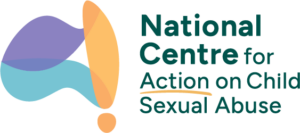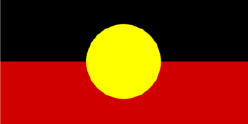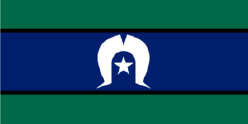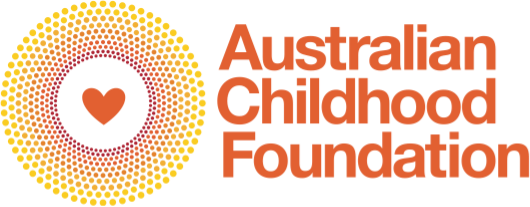Active Research
Understanding best practice and the role of professionals in preventing child sexual abuse and harmful sexual behaviours
- Identification of child sexual abuse
- Prevention of child sexual abuse
- Response to child sexual abuse
- Understanding child sexual abuse
Research Topic areas
- Drivers of child sexual abuse
- Education
- Harmful sexual behaviours
- Institutional abuse
Project Duration
Start: January 2025
End: December 2025
Geographical Scope
Nation-wide
Populations
Workforce
Young children (0-5 years)Children (6-12 years)
Gender
All genders
Project Lead
Chelsea Farrugia, Australian Catholic University
Project Team
Prof Daryl Higgins, Australian Catholic University
Douglas Russell, Australian Catholic University
Dr Megan Willis, Australian Catholic University
Prof Andrea de Silva, National Centre for Action on Child Sexual Abuse
Alexandra Shriane, National Centre for Action on Child Sexual Abuse
Background
Educating children about sexual abuse, by increasing their knowledge and skills, is an effective way to prevent child sexual abuse. Equally importantly, adults working in educational settings, such as educators, administrators and policy makers, must be well equipped with an understanding about their role in protecting children and implementing proper policies and practices to reduce the risk of sexual abuse. Educators have a responsibility to protect and prevent sexual abuse but also report any observations or disclosures of abuse by children, and to foster a safe environment within education settings. To achieve this goal, there is a need to understand what good practice looks like in education settings, to ensure that all staff are meeting the necessary requirements and following the rules to keep children safe in their care.
Aims
The proposed study aims to gain an understanding of the experiences of Early Childhood Educators implementing practices to protect children from sexual abuse, specifically:
(1) What does best practice by Early Childhood Educators to prevent Child Sexual Abuse look like in the early learning sector?
(2) What are the barriers and facilitators that effect implementing these efforts?
(1) What does best practice by Early Childhood Educators to prevent Child Sexual Abuse look like in the early learning sector?
(2) What are the barriers and facilitators that effect implementing these efforts?
Methods
A systematic literature review examining available evidence will be conducted, following which educators, administrators and policy makers working in the early childhood sector will be recruited to participate in semi-structured interviews.
Significance and Dissemination
There is a lack of empirical work focused on how early childhood educators and staff are involved in child sexual abuse prevention. It is unclear what best practice in early childhood education is, and how facilitators and barriers of child sexual abuse prevention impact child safety. When the groups of children are younger, there is greater opportunity for individual interaction between adults and children due to their dependency, and greater need for safeguarding as there are more opportunities for abuse to occur.
Further Details
Share project
Funding body:
Australian Catholic University, National Centre for Action on Child Sexual Abuse
Australian Catholic University, National Centre for Action on Child Sexual Abuse
Related posts: Prevention
Prevention of child sexual abuse
Upskilling the community sport volunteer workforce to respond to child abuse in sport: a collaborative research project
Aurelie Pankowiak
Institute for Health and Sport, Victoria University
Institute for Health and Sport, Victoria University
Prevention of child sexual abuse
Accessibility of child sexual abuse prevention in Australia
Susan Rayment-McHugh
Sexual Violence Research & Prevention Unit, University of the Sunshine Coast
Sexual Violence Research & Prevention Unit, University of the Sunshine Coast
Nadine McKillop
Sexual Violence Research & Prevention Unit, University of the Sunshine Coast
Sexual Violence Research & Prevention Unit, University of the Sunshine Coast






